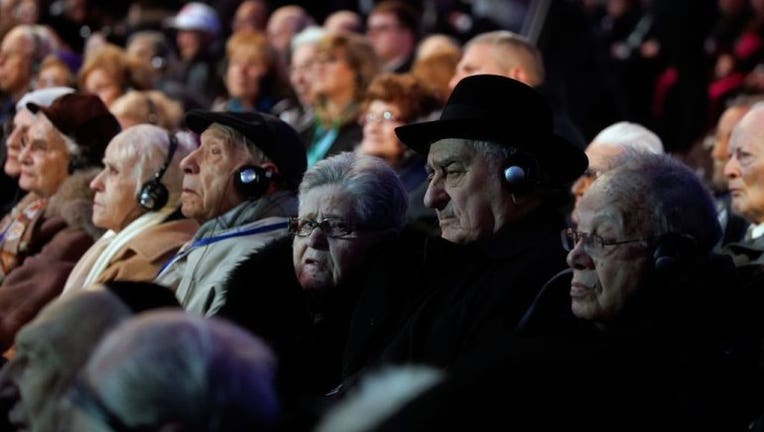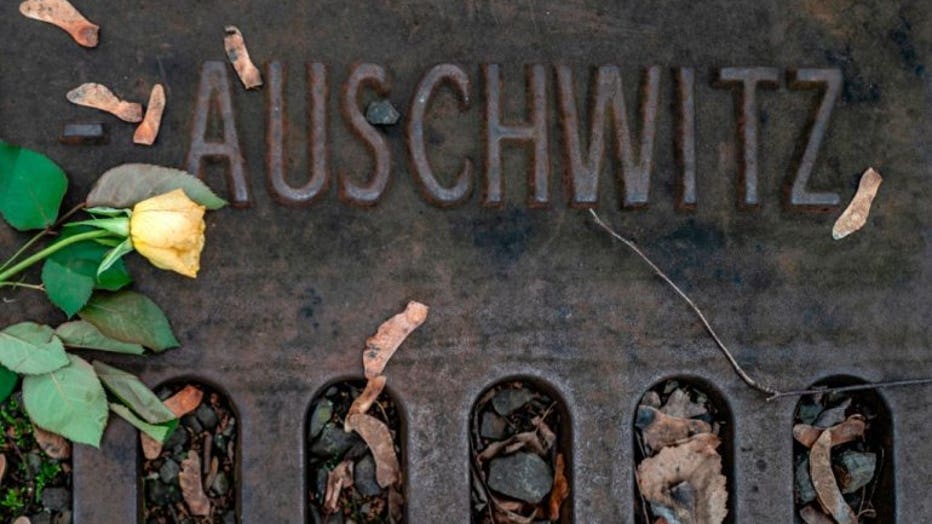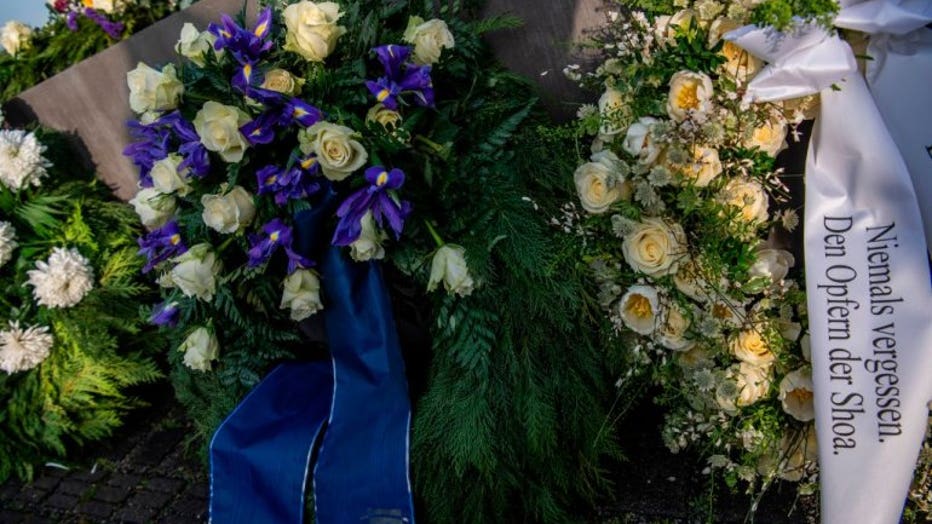Millennials, Gen Z lack in basic Holocaust knowledge, survey finds

Survivers attend the offical ceremony at the former German Nazi death camp Auschwitz-Birkenau during events to commemorate the 75th anniversary of the camp's liberation in Oswiecim, Poland, on January 27, 2020. - More than 200 survivors came from acr
OSWIECIM, Poland - Millennials and Gen-Z adults in the U.S. lack general knowledge about the Holocaust, a new survey said.
“The results are both shocking and saddening and they underscore why we must act now while Holocaust survivors are still with us to voice their stories,” said Gideon Taylor, President of the Conference on Jewish Material Claim Against Germany, the organization that conducted the poll.

A rose is placed near the name "Auschwitz" on a plaque detailing the transport dates and destinations of Jews sent from Berlin to various concentration camps between 1942 and 1944, at the Platform 17 (Gleis 17) memorial, next to the Gruenewald S-Bahn
The group concluded that schools must be responsible for providing more thorough Holocaust education.
The survey also revealed a majority of American adults believe fewer people (70%) care about the Holocaust today than they used to and 58% of Americans believe the Holocaust could happen again.
In addition, 31% of Americans and more than 41% of Millennials believe substantially less than 6 million Jews were killed during the Holocaust. There were more than 40,000 concentration camps and ghettos in Europe during the Holocaust, and 45% of Americans cannot name one.

Wreaths, one bearing the inscription: "To the victims of the Shoah", are laid against one of the concrete steles of the Holocaust memorial in Berlin on January 27, 2020, to commemorate the 75th anniversary of the liberation by Soviet troops of the Au
While 55% of Millennials knew the Holocaust occurred in World War II, 19% believed it occurred in World War I while 2% claimed it occurred in Vietnam and 1% in the U.S. Civil War, the report said.
The study was commissioned by the Conference on Jewish Material Claims Against Germany and involved 1,350 American adults reached via landline, cellphone and online interviews. All respondents were selected at random.

